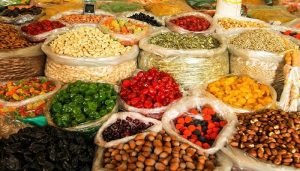
TBILISI, GEORGIA - JUL 18: Sale of agricultural products on central food market, Jul 18, 2011 in Tbilisi, Georgia. Suitable for farming areas account only for 16% of total territory of the country.
Following recent developments that have temporarily halted Ukraine’s grains to other countries through the Black Sea, the United States Agency for International Development (USAID) has warned Nigeria and other African countries to brace up for higher food prices.
Russia had earlier exited the Black Sea deal after the expiration on July 18th and had been hell-bent on not renewing the deal except certain requirements are met, which include the export of Russia’s food and fertilizer. Russia’s withdrawal from the deal triggered higher food prices on the global market.
The impact of this food price would largely be felt by developing countries that are import-dependent and have conventionally relied on grain imports from Ukraine. USAID has said to have made substantial investments via the “Feed the Future” campaign to make developing countries more resilient to food crises. Over 40 countries across Africa, Asia, Latin America, and the Caribbean were invested.
According to a report, Ukraine exported 33 million metric tonnes of food, 65 percent of which went to developing countries, while 20 per cent went to the least developed countries. Nigeria imported about $500m worth of grain from Ukraine in 2021; showing that the Black Sea Grain Initiative’s termination inevitably spelt higher food prices.
Analysts would expect import-depending countries will seek alternatives to import grains from other countries. Increasing local production would also be another option to explore too. Analysts believe that food prices will increase momentarily throughout Q3 of the year








